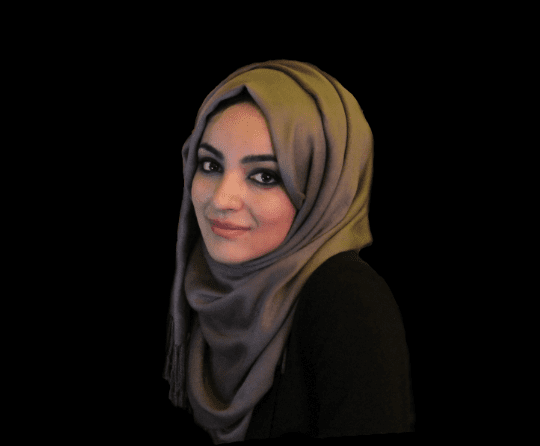After the resounding success of Stories from Morocco, which debuted at London Fashion Week in 2017, this year saw the introduction of fashion platform Stories from Arabia which showcased elite designers from around the Middle East and North Africa and their creative skill and craft through their collections.
In what has been described as the “largest Arab platform for emerging and established designers showcasing at London Fashion Week,” Stories of Arabia was welcomed by large crowds at the De Vere Grand Connaught Rooms in London.
Fashion experts, bloggers and enthusiasts watched as eight designers from the Arab world brought their collections to a beautifully designed catwalk.
Founded by London based entrepreneur Jalila Elmastouki, Stories from Arabia revives the craftsmanship of traditional embroideries from the Middle East and North Africa but with a western twist. It highlights and promotes the work of designers with their bespoke and handmade pieces that re-work old designs into contemporary pieces.
Attendees at the event were treated to a media lounge where they could get their hair, make-up and henna done before the main show.
Read: Saudi Arabia to host Arab Fashion Week for the first time
Eight designers featured this year from the Middle East, North Africa, USA and the Gulf including Bassma Boussel, Ahmed Albalushi, Ghita Lahrichi, Maysoon Alshami, Leila Elhajouji, Velvet Abaya, and Raghda Tapponi.
“London Fashion Week [last year] was overwhelmed with the designers of Morocco so we thought why don’t we bring something again and expand and instead of focusing on one country we should go broader and expand to all Arab countries,” Jalila told MEMO. Mainly women were featured “because we wanted to pass a message for this season that Arab women are creative, not oppressed”.
![Leila Elhajouji uses her jewellery to decorate traditional kaftans on display at Stories from Arabia as part of London Fashion Week on 19 February 2018 [Jehan Alfarra/Middle East Monitor]](https://i0.wp.com/www.middleeastmonitor.com/wp-content/uploads/2018/02/portrait.jpg?resize=222%2C333&ssl=1)
Leila
Elhajouji uses her jewellery to decorate traditional kaftans on display at Stories from Arabia as part of London Fashion Week on 19 February 2018 [Jehan Alfarra/Middle East Monitor]
“I’m an architect, I love seeing neutral colours. Being a contemporary designer in my country was a challenge because my cuts and designs were different from the traditional clothes but it still fits in with the Arabian woman.”
Young Iraqi designer Raghda Tapponi featured her collection Zenobiaa, a brand that represents “Arabic culture, Arabic civilisations and monuments of the Middle East delivered to the Westernised contemporary design,” she told MEMO.
Her brand is named after Queen Zenobia in order to empower strong and educated women and is a nostalgic nod to the history of the Middle East and the “culture and creativity of our ancestors”.
Moroccan designer Ghita Lahrichi’s collections are a “mixture of cultures” and showcases modern jumpsuits with a Moroccan traditional twist. Lahrichi accredits her mother for getting her into fashion: “My mum is a fashion designer and when you’re a little girl and you see your mum you tell yourself ‘I want to be her’. She gives me this passion for fashion.”
Dutch Moroccan Leila Aziz showcased her collection “Kayat” which is inspired by the Arab world and specifically Morocco. “My collection has a lot of Moroccan embroideries and very old fabrics that we use and is inspired by my Moroccan background,” she said.




![104A0284 Leila Elhajouji uses her jewellery to decorate traditional kaftans on display at Stories from Arabia as part of London Fashion Week on 19 February 2018 [Jehan Alfarra/Middle East Monitor]](https://i0.wp.com/www.middleeastmonitor.com/wp-content/uploads/2018/02/104A0284.jpg?w=797&h=531&ssl=1)
![104A0229 Stories from Arabia exhibits at London Fashion Week 2018 [Jehan Alfarra/Middle East Monitor]](https://i0.wp.com/www.middleeastmonitor.com/wp-content/uploads/2018/02/104A0229.jpg?w=395&h=264&ssl=1)
![104A0217 Stories from Arabia exhibits at London Fashion Week 2018 [Jehan Alfarra/Middle East Monitor]](https://i0.wp.com/www.middleeastmonitor.com/wp-content/uploads/2018/02/104A0217.jpg?w=395&h=263&ssl=1)
![104A0211 Stories from Arabia exhibits at London Fashion Week 2018 [Jehan Alfarra/Middle East Monitor]](https://i0.wp.com/www.middleeastmonitor.com/wp-content/uploads/2018/02/104A0211.jpg?w=596&h=397&ssl=1)
![104A0201 Stories from Arabia exhibits at London Fashion Week 2018 [Jehan Alfarra/Middle East Monitor]](https://i0.wp.com/www.middleeastmonitor.com/wp-content/uploads/2018/02/104A0201.jpg?w=596&h=397&ssl=1)
![Ghita Lahrichi's line Handmade on display at Stories from Arabia, London Fashion Week, on 19 February 2018 [Jehan Alfarra/Middle East Monitor]](https://i0.wp.com/www.middleeastmonitor.com/wp-content/uploads/2018/02/104A0212.jpg?resize=1200%2C800&ssl=1)








